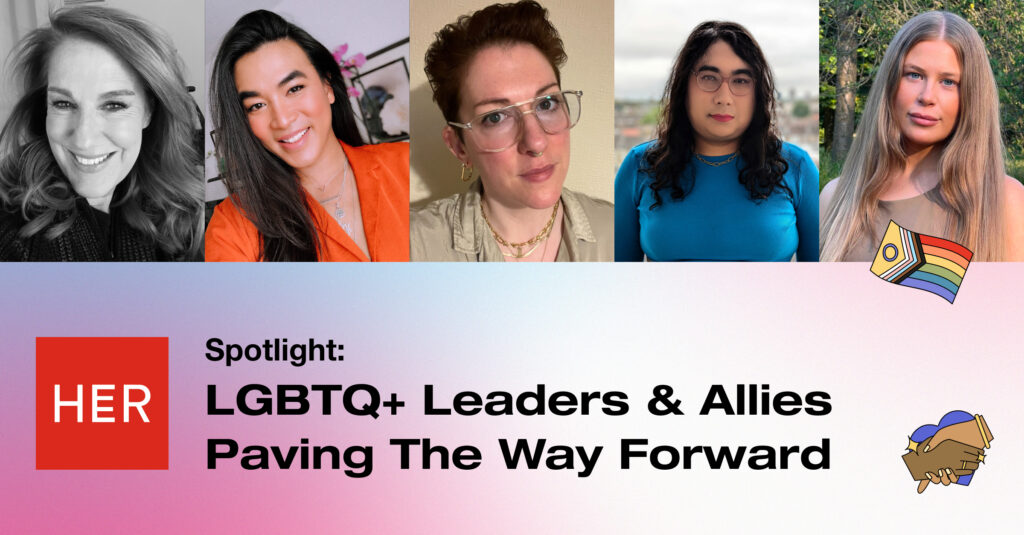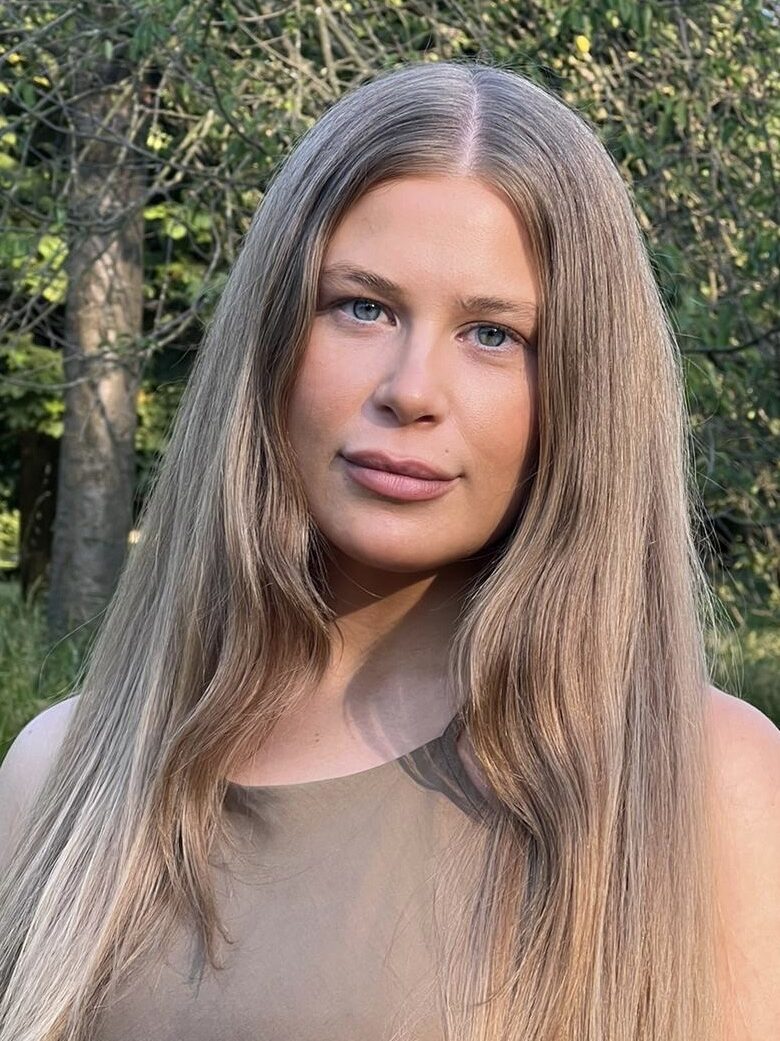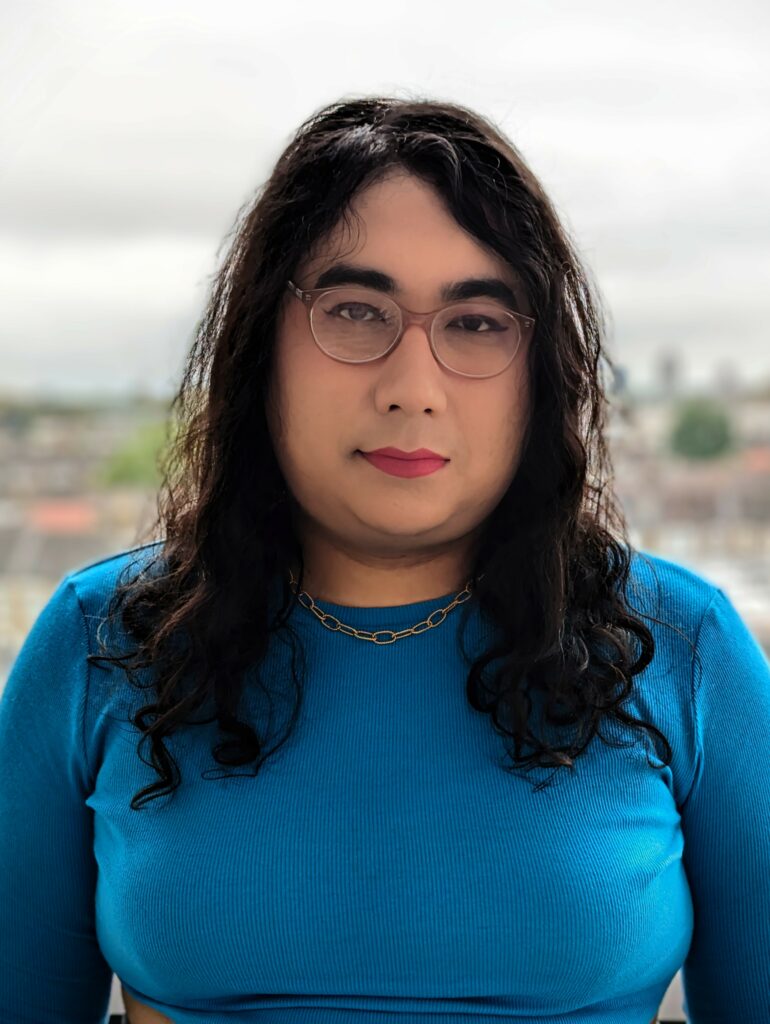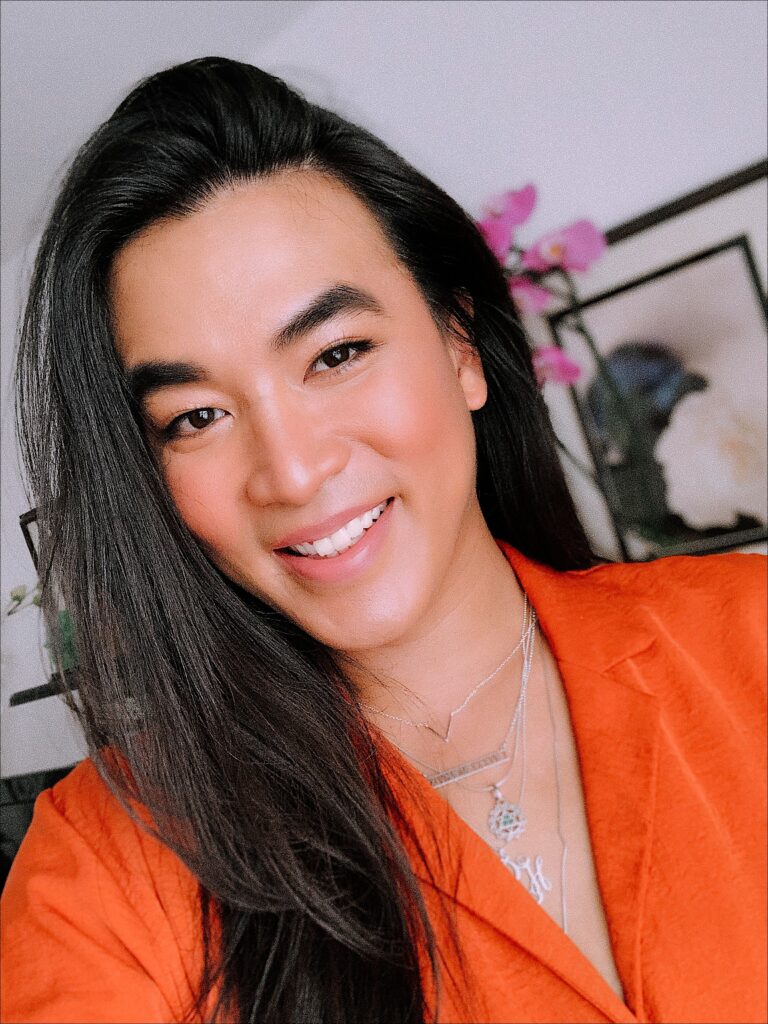Angie Gola-Ebue, Global Head of Advertising & Partnerships at HER, is proud to introduce our next cohort of LGBTQ+ professionals and allies, who have kindly taken the time to reflect on Pride Month, their personal experiences, as well as their contribution to the Marketing & Advertising industry.
As a reminder, our LGBTQ+ Leaders & Allies Paving The Way Forward series aims to spotlight the inspiring stories of changemakers around the world. All participants are contributing to this column on a voluntary basis:
- Paula Veale (She/Her), Chief Marketing and Communications Officer, The Ad Council
- Ella Leah (She/Her), Head of Marketing, Stonewall
- Alex Parmar-Yee (She/They), UK Strategy Lead & DEI Lead, Awin
- Sonnie Spenser (They/Them), Digital Marketing Manager, Fresh Pies (Communications Co-Director, Outvertising ; Director of Outreach, Trans+ History Week)
- Ari Humirang (They/She/He), LGBTQIA+ Advocate and Activist
From your point of view, what is a great example of brand allyship?
Paula Veale:
The Ad Council’s iconic – and Emmy-winning – Love Has No Labels campaign is one that is near and dear to me and has been incredibly impactful in promoting acceptance and inclusion across race, religion, gender, sexual orientation, age, and disability.
We would not be where we are today without the work of our incredible creative partners at R/GA, and it has been truly amazing to see the campaign continue to resonate with every iteration since we launched the campaign almost 10 years ago. People are clearly eager to share something that reminds them of our shared humanity, calling for acceptance in a time of division, and this campaign uplifts human-first storytelling to accomplish that. In fact, 88% of people who are aware of Love Has No Labels films took at least one inclusive action in the last year, while only 62% of those not aware of the PSAs took action. Love Has No Labels has proven, and continues to prove, that there is a strong appetite for content that can bring us together.
Ella Leah:
Vodafone. Vodafone Foundation demonstrates the year-round brand allyship I mentioned earlier with its development of the Zoteria app in partnership with LGBTQ+ charities, Stonewall and Galop.
Zoteria is an incredible platform whereby anyone who experiences or witnesses an anti-LGBTQ+ hate incident – no matter how big or small – can report it straight away. Zoteria isn’t an emergency app and is not connected to the police, instead it can connect you with an expert case worker from Galop. Galop is a UK-based LGBT+ anti-abuse charity who have worked with LGBT+ victims and survivors of abuse and violence for more than 40 years. They’re vital in the current climate, where in the past five years transphobic hate crimes have increased by 186% and hate crimes against lesbian, gay, and bisexual people have by 112%. Flagging an incident not only provides a survivor with a dedicated case worker, but also creates a detailed map of the circumstances in which hate incidents occur across the UK.
By continually funding and endorsing Zoteria year after year, the Vodafone Foundation are showing their commitment and allyship to the safety of LGBTQ+ people.
Alex Parmar-Yee:
I don’t think I’m alone in thinking that allyship needs to move beyond relying exclusively on “love is love / be who you want to be” messaging, which can often feel hollow. The trans+ community is bombarded with hate and sometimes made to feel as if they do not belong within our society. Therefore, I welcome brands that are explicitly displaying trans-specific allyship. The E45 advert from earlier this year, which won a diversity in advertising award, is a particularly wonderful example of this. E45 clearly had trans people lead the concept as the ad accurately represented so much trans experience, all whilst being fun and featuring the universal benefits of the E45 cream.
Sonnie Spenser:
I’m really into visible, active allyship, at all levels. My company had everyone’s pronouns in their email signature within a week of joining. My previous company encouraged me to speak about inclusivity at marketing events, and write articles on DEI. That is allyship.
In a more public forum, after the Dylan Mulvaney/Bud Light debacle, we’ve seen a decline in visible active allyship from brands, because they are letting discomfort and fear of ‘getting it wrong’ get in the way.
We already know from the Outvertising Consumer Report that queer folks are more likely to recommend something they’ve seen in ads, but ads that say “Hey! You exist, and we respect you and include you”, are currently the exception and not the rule. It’s also really easy to use a white able-bodied queer-coded man as a shorthand for our community, but for me that just simply isn’t enough for active allyship and inclusivity. (Shameless plug – Outvertising will be launching their free Advocacy Playbook shortly to support businesses in the effort to rebuild representation, and you can sign up for that here)
That’s why I absolutely adore the E45 transitioning skin advert. The lead video well deservedly won awards, but E45 have backed it up by making it their homepage content and adding it to the top navigation on their website. Their language is respectful, it acknowledges the experiences of the trans community, and they have also sought to include trans+ masculine experiences within a very femme-led campaign.
Ari Humirang:
From my point of view, MAC Cosmetics is a shining example of brand allyship. As a MAC Viva Glam ambassador, I have witnessed first-hand the brand’s unwavering commitment to the LGBTQ+ community. Their dedication began with the first-ever Viva Glam campaign, which featured Supermodel of the World and Queen of Drag, RuPaul, and continues today with the latest campaign starring Kim Petras, a trans music icon. The “MAC 40 Shades of Pride” campaign is another testament to their support, offering a limited-edition eyeshadow palette packed with 40 new iconic and best-selling shades. Impressively, 100% of the proceeds go to the MAC Viva Glam Fund, which has long been a supporter of LGBTQ+ causes and HIV/AIDS research. Since 1994, the Viva Glam campaign has raised over $500 million, funding programs and services that improve the lives of people affected by HIV/AIDS, including the LGBTQ+ community. By consistently aligning their products with meaningful causes and actively promoting inclusivity, MAC Cosmetics demonstrates genuine and impactful allyship.
What advice would you give to LGBTQ+ professionals and allies who want to make a difference?
Paula Veale:
As a leader, embracing diversity, equity, inclusion and belonging are moral imperatives and strategic advantages. Having our teams be reflective of diverse backgrounds not only strengthens our organization, but also allows us to foster innovation and creativity within our teams. At the Ad Council we proactively bring diverse perspectives to the table, ensuring we can create a more equitable and prosperous environment that benefits everyone. DEIB aligns with who we are at the Ad Council and enhances our ability to learn and grow both internally and for the audiences we serve.
Ella Leah:
Being LGBTQ+ in a heteronormative workplace where it doesn’t feel like a safe environment to be open about your sexuality can be isolating. This can be even more the case if you hold other identities, such as having a disability, or being a Person of Colour. At times, when I wasn’t confidently owning or at peace with my sexuality, I felt alone at work and like I couldn’t be myself. I’ve experienced biphobia throughout my career; people making jokes, gossiping and belittling my attraction to women. I’d encourage LGBTQ+ professionals at the early stages of their careers to proactively choose employers that promote an inclusive workplace; if this is not possible, seeking a community outside of work can be just as validating. Building connections with other LGBTQ+ people in and out of work gives us a safety net. Stonewall has a wonderful programme for Young LGBTQ+ Leaders, which allows them to build allies from all over the country and across different types of workplaces – it’s also free!
I would also encourage LGBTQ+ professionals to capitalise on their natural gifts and talents and select an employer that will allow them to utilise these rather than go against the grain. If you’re introverted, quiet, and need a lot of downtime, don’t force yourself into an on-site role where you constantly have to present and have face-to-face meetings. Equally, if you’re outgoing, friendly and love to work collaboratively, don’t choose a completely remote job. Our work environment can dictate our mood, so choosing one suited to your temperament is really important.
Alex Parmar-Yee:
In the workplace, everyone deserves to feel secure and accepted. For LGBTQ+ individuals, this may sometimes involve concealing their identity, but this isn’t always feasible or fair. As a trans person, I understand the challenge of not being able to hide one’s identity. Suppressing who you are can be detrimental to your well-being and work performance. While this may not always be the right thing for everyone, I encourage you to consider the possibility of being as open as possible at work. Seek employers who genuinely value diversity, and this can be evident through their actions such as LGBTQ+ staff networks, pronoun usage in communications and Pride events.
If your company lacks visible LGBTQ+ support, look for community groups specific to your field. I’ve personally found groups like Out In Tech, Outvertising (marketing and advertising), and Trans In The City offer valuable networking and mentorship opportunities, and a sense of community that have helped me feel more connected with other queer professionals.
If you’re the first openly queer person in your company, remember that you don’t have to shoulder the responsibility of being a pioneer unless it aligns with your role. Any efforts you make towards inclusivity should be recognised in your performance reviews, ensuring that your contributions are valued and acknowledged.
Sonnie Spenser:
Value your time, especially when it comes to opportunities. If someone reaches out to you, specifically because you’re LGBTQIA+, for your insights or your time or your talent, ask them to pay you. And then if it’s unpaid, ask yourself if the trade off, the thing that makes it worth it, is there. I don’t object to unpaid work per se, what I DO object to is brands benefiting from queer talent without acknowledging that it’s unpaid. If you decide to do the work, ask that it is visibly noted that it was free. Which is why somewhere on this page you should see that the people who have shared content have not been remunerated.
Additionally, if it’s safe for you to do so, start off in every role the most authentic version of yourself. Whether it’s your name or how you present yourself, living as much of your truth as possible at work means it’s less draining. It can even be nourishing. I changed my name mid-way through the interview process of my current role, and hearing my colleagues use it without hesitation is a source of deep joy for me.
Ari Humirang:
Embrace your authenticity as being true to yourself is your greatest asset; it fosters confidence and helps build genuine connections with colleagues and mentors. Seek out allies and mentors within your organization or industry who can offer guidance, support, and advocacy, as they can be instrumental in navigating your career. Build a support network by joining LGBTQ+ professional groups or networks where you can share experiences, gain insights, and find encouragement from those who understand your journey. Be proactive in advocating for inclusivity within your workplace, and if your company lacks LGBTQ+ policies or support systems, consider working with HR or diversity committees to implement them. Invest in continuous learning to stay informed about your industry and continuously develop your skills, as being knowledgeable and competent in your field strengthens your position and visibility. Finally, take care of your well-being by balancing professional and personal life, ensuring you have a strong support system outside of work, and prioritizing your mental and physical health.
How can brands get Pride & inclusivity right in the future?
Paula Veale:
At the Ad Council, our unique position as a nonpartisan and trusted messenger for effective social impact programs enables us to bring together the best talent and resources from the advertising, media, technology, and entertainment industries to move the needle on the most pressing issues in America. For more than 80 years, we have shifted attitudes and behaviors on a range of issues facing the American public, with a current focus on gun violence prevention, hate & bias, mental health, the overdose crisis and more. We’re grateful to have recently been recognized by AIMM as one of the most culturally inclusive brands, an honor that is a testament to the strides we’ve made in reflecting the diversity of all people in this country across our campaigns, content and storytelling to make change within our industry and the nation.
Internally, my goal as a leader is to cultivate environments where collaboration and transparency can thrive, allowing everyone to be both represented and feel safe sharing their opinions and expertise. It’s important to continuously strive to foster a culture of learning and improvement, contributing to the growth and success of the Ad Council brand and the incredible team behind it. Especially in a remote world, I place immense importance on being intentional with how I lead, whether that be through goal setting or day-to-day communication – it is through purposeful actions and clear vision that true impact and lasting change can be achieved.
Ella Leah:
IN: Brand ambassadors and word-of-mouth marketing. Organic connections, face-to-face talks, and genuine conversations from authentic ambassadors feel like a lost art since COVID, but they produce stronger and more reliable leads than a sponsored ad on Meta, which is essentially a cold call to a lukewarm audience. The best marketing tool for Pride Month is connecting people with a credible, authoritative queer representation of a brand or organisation to ensure an experience of trust in the message. For example, an incredible colleague of mine, Felix, spoke on the importance of equality and inclusivity at Tony’s Chocolonely for Pride. As a result, Tony’s experience of Stonewall will be one of friendliness, openness, with the ability to ask questions. This is by far the most reliable marketing tool we can use to connect people with the importance of allyship and LGBTQ+ equality.
OUT: Brands using performative allyship as a marketing tool to promote themselves as unified, diverse, and inclusive… for just one month of the year. They are attempting to improve their brand image with empty promises, monopolising on the fact that queer allies are more likely to purchase from a company that supports LGBTQ+ equality.
Instead, LGBTQ+ people want a year-round commitment to our community –be it money, time, or simply advocating for our causes on social media and empowering us to amplify our voices. We are extremely powerful purchasers who show brand loyalty. LGBTQ+ consumers are 25% more likely than straight and cisgender consumers to stay with a brand when its price increases. We are also 33% more likely to ask for brands by name than a generic item. Even if brands don’t see the ‘point’ in investing in LGBTQ+ causes from a moral standpoint, they should at least do it because we’re loyal customers who like to buy gorgeous products.
A credible way to show brand loyalty throughout the year is to join Stonewall’s Diversity Champions Programme. Being a member gives you guidance and practical advice on creating a more inclusive workplace for your employees.
Alex Parmar-Yee:
Within advertising and marketing, personally I have been a bit concerned about a definite drop in the amount of pride campaigns this year. I believe tighter ad budgets are playing a role, but there’s also a concern by some brands of consumer backlash following increased polarisation off the back of some activity last year, and with the current political landscape being so volatile. However, one thing that I’ve been glad to see is clients moving away from pride month being the only moment they focus on this community. Within our influencer marketing team, they’ve noticed more brands ensuring that the talent they work with remains diverse all year round, which not only helps queer talent but allows consumers of all backgrounds to feel more affinity with, and closer to these brands.
Sonnie Spenser:
Well, what’s OUT is definitely just blithely plastering ‘love is love’ everywhere. Audiences are beginning to understand that it’s not just sexuality that can be queer, but also gender experiences and identities.
What’s IN is the New Progress pride flag, which I was delighted to see hung on Regent Street this month. What’s also IN is that audiences, especially younger millennials and gen Z, are paying much more attention to the ethics and values of brands. They’re questioning and therefore demanding more. It’s not enough to have a flag up in June, they want to know what percentage of profits from your Pride merch are going to which LGBTQIA+ charities. Increasingly, they want to buy directly from queer owned businesses and leave the big box brand products behind- And I am so here for it.
Ari Humirang:
IN: Authenticity and Year-Round Support: Consumers are looking for brands that show genuine support for the LGBTQ+ community, not just during Pride Month. Brands that engage in meaningful actions, policies, and advocacy throughout the year are in favor. Diverse Representation: Inclusive marketing campaigns featuring a wide range of LGBTQ+ identities and experiences, including intersectional representation of race, gender, and ability, are trending. Collaborations with LGBTQ+ Creators: Partnering with LGBTQ+ influencers, artists, and activists to co-create content and products resonates strongly with audiences. Supporting LGBTQ+ Causes: Brands that donate a portion of their proceeds to LGBTQ+ charities or initiatives, such as MAC’s 40 Shades of Pride eyeshadow palette supporting the MAC Viva Glam Fund, are highly regarded. Storytelling: Campaigns that share authentic stories from the LGBTQ+ community, highlighting personal journeys and experiences, are impactful.
OUT: Rainbow-Washing: Simply slapping a rainbow on a product without any real commitment or action towards LGBTQ+ issues is being called out by consumers. One-Month Engagement: Brands that only support the LGBTQ+ community during Pride Month and disappear afterward are losing credibility. Stereotyping: Using outdated or one-dimensional portrayals of LGBTQ+ individuals is increasingly criticized. Performative Allyship: Brands that make superficial gestures without substantial backing or policy changes are viewed negatively.












